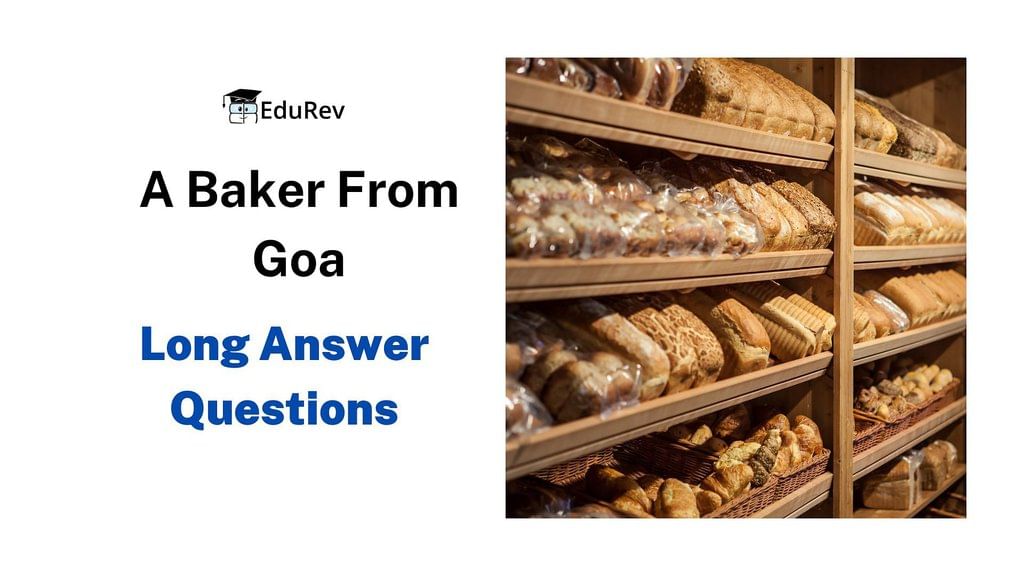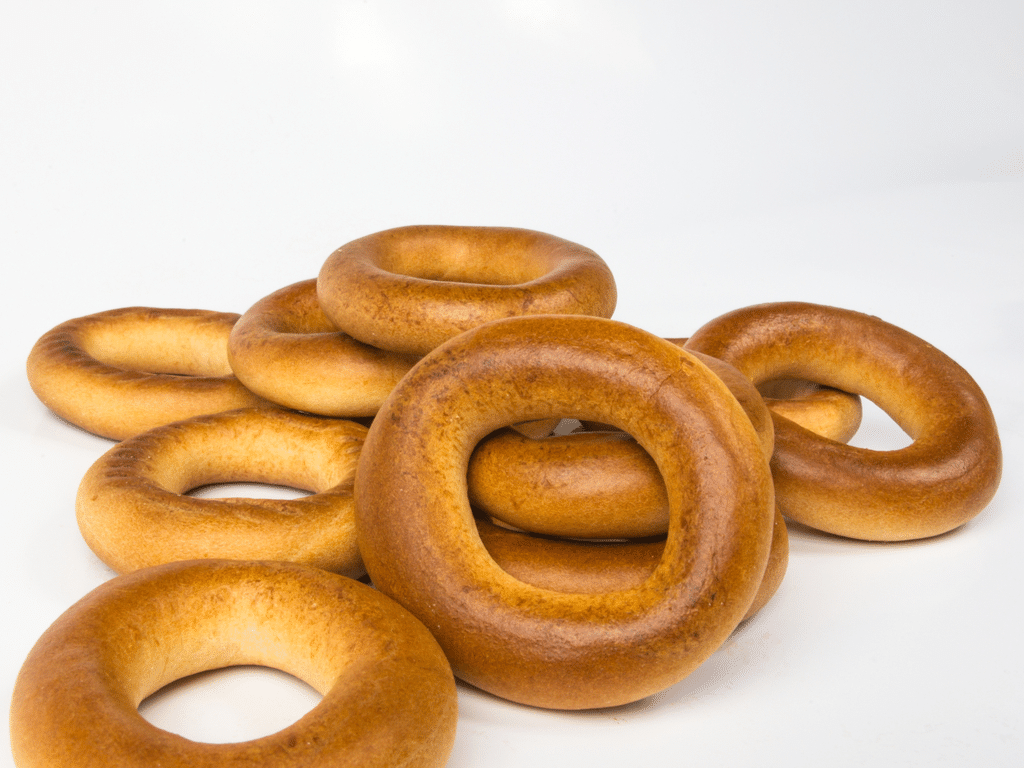Class 10 English Chapter 1 Question Answers - First Flight
 Q1. Why is a "baker's furnace" necessary in a Goan village?
Q1. Why is a "baker's furnace" necessary in a Goan village?
Ans: In Goa, the Portuguese legacy of bread-making has persisted over time. Although the consumers of the famous loaves may have diminished, the bakers remain vital to the community. In Goan villages, the mixers, moulders, and bakers continue to thrive, along with their traditional furnaces that are essential for their craft. The bakers play a significant role, especially when the lady of the house needs to prepare sandwiches for her daughter's engagement or bake cakes and bolinhas for Christmas and other festivals. Thus, the presence of a baker's furnace in the village is crucial for maintaining these cultural traditions.
Q2. Describe the childhood memories of the author’s life in Goa and his fondness for bread and cakes.
Ans: The author's childhood memories are filled with joy and nostalgia. The pader, or baker, played a significant role in both the Goan village and the author's life. He would mix, shape, and bake loaves of bread in traditional furnaces. The pader visited twice daily: once in the morning to sell bread and again later, returning with an empty basket. His arrival was marked by the cheerful sound of his bamboo staff, “jhang, jhang.” The author and other children would eagerly run to greet him, hoping to receive bread-bangles or sweet bread made for special occasions. During these visits, they would chat and share stories, creating cherished memories.
Q3. The narrator shares, “Baking was indeed a profitable profession in the old days.”
(a) What do you feel has changed now? Why?
(b) State any one way, you feel, the paders can regain their lost glory.
Ans: (a) The role of the baker, or pader, was once vital in Goan life. Over time, while bakers have continued their craft, their significance has diminished. The profession of baking bread has not vanished since the end of Portuguese rule; Goa still has its mixers, moulders, and bakers. The traditional furnaces continue to produce unique loaves. Events like marriages, feasts, and Christmas remain incomplete without the sweet bread known as bol. However, the tradition is not entirely lost.
(b) The paders can reclaim their former prestige through consistent hard work and by embracing their traditional methods. The new generation of bakers is still carrying on the family legacy, which can help them regain their lost glory. Bread Bangles
Bread Bangles
Q4. Baking was a profitable profession in the old days in Goa. Prove it by giving examples.
Ans: Baking was a profitable profession in the old days in Goa. The people of Goa enjoyed the fragrance of freshly baked bread, which was essential for various occasions and ceremonies. For instance, marriage gifts were incomplete without the sweet bread known as bol, and no party was considered complete without bread. During a daughter's engagement, the lady of the house had to prepare sandwiches, while bolinhas were a must for Christmas and other festivals. The baker's furnace was crucial in every village, and bakers typically collected their payments at the end of the month. Their families never went hungry, and they appeared happy and prosperous. Their plump physique served as a visible sign of their well-being and success.
Q5. How is the effect of the traditional bread bakers can still be seen in Goa of today?
Ans: The author fondly recalls his childhood in Goa, where the village baker played a vital role in daily life. Bread was a common food, especially during Christmas, weddings, and other celebrations. Although fewer people eat bread today, the village bakers, known as pader, still exist. The influence of the Portuguese, who were famous for their bread, lingers on, even though they left Goa long ago.
The traditional furnaces used for baking bread remain, and the familiar sound of the baker's bamboo can still be heard in some areas. While some bakers may have passed away, their children continue the family tradition. After Goa's liberation, there was a belief that the Portuguese bread had disappeared with the paders. However, these bakers have adapted by perfecting their door-to-door delivery service, ensuring their survival. In the past, the baker was a friend and guide to the community, visiting twice daily. The paders still wear their traditional long frocks, and bread and cakes remain essential to Goan life. The presence of the baker's furnace is crucial for celebrations, as gifts and feasts are incomplete without the sweet bread known as bol.
Q6. Justify the opinion that the traditional baker and his bread play a significant role in the cultural and social fabric of Goan society.
Ans: The traditional baker and his bread hold a significant place in the cultural and social fabric of Goan society. Introduced by the Portuguese, their famous loaves became integral to Goan cuisine. The baker's bread is not merely a food item; it symbolizes social and economic status. Bakers play a crucial role in local commerce, often selling their bread door-to-door, a practice that has been passed down through generations.
Even today, many bakers continue the family tradition, maintaining a connection to Goa's rich culinary heritage. The presence of these bakers and their time-tested furnaces represents a cherished aspect of the community. Their craft is celebrated, as bread is essential for various occasions, from weddings to festivals. The baker's role extends beyond mere food production; he is a vital part of village life, ensuring that traditions are upheld and that the community remains connected to its past.
Q7. Give a pen portrait of a baker in Goa.
Ans: The baker, or pader, plays a vital role in Goan village life. Traditionally, bakers wore a distinctive outfit called the kabai, a knee-length frock. Over time, they transitioned to wearing shirts and trousers that were longer than shorts but shorter than full-length pants. Generally, bakers enjoyed a prosperous lifestyle, often reflected in their plump physique, which indicated a good income. They, along with their families and staff, were never in want of food.
Bakers were considered friends and mentors by the community. They would visit homes twice daily, bringing fresh bread in their baskets. Children eagerly awaited their arrival, excited to choose bread bangles from the baker's offerings. Even today, baking remains a cherished tradition in Goa, with traditional ovens still in use, and bakers continue to be affectionately known as paders. The presence of a baker is essential for various occasions, such as preparing sandwiches for a daughter's engagement or serving cakes and bolinhas during Christmas and other festivals. The baker's furnace is a staple in the village, highlighting the importance of their craft in Goan culture.
|
61 videos|620 docs|69 tests
|
FAQs on Class 10 English Chapter 1 Question Answers - First Flight
| 1. What is the significance of the profession of baking in Goa as described in the article? |  |
| 2. How does the author describe the daily life of a baker in Goa? |  |
| 3. What are the different types of bread mentioned in the article, and what is their cultural significance? |  |
| 4. How does the author portray the changes faced by bakers in modern times? |  |
| 5. In what ways does the article emphasize the relationship between the baker and the community? |  |

















